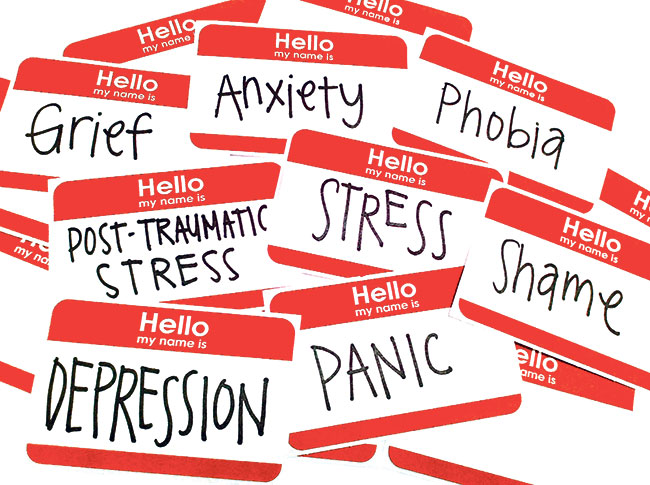KATHMANDU, April 2: “I was going through mild-depression that lasted about a year. If I have to describe in words, I would say I always felt sad, I could feel the void and that I was directionless. My mind was blank and I often found myself zoning out, even between conversations. I refrained from talking about it for so long. I sought professional help too, but I did not find it effective. I knew the depression was eating me alive. So, rather than sitting idle, I started doing things I loved that helped me overcome my depression. And I realized having a sound mind makes a lot difference.”
That was what Sandhya (name changed on request) had to share about the condition of her mind.
 Photo: educationviews-org
Photo: educationviews-org
Mental illness has become a frequent problem among the youth of today. However, people would rather silently suffer from mental illness than talk about it openly. It is easier and acceptable for people to talk about the physical illness, but issues of mental health are still regarded as ‘unacceptable’ topic of discussion in our society. If anyone dares to talk about being disturbed, or depressed, s/he is immediately looked down as ‘mental’ or termed ‘psychologically-challenged’.
THE BIG SWIMMING GALA AT MY SCHOOL

People are yet to realize that the effects of stress or trauma can be severe. Accidents, death, rape, harassment, betrayal, and disappointments are few consequences of mental imbalance. But not all situations affect people in the same way; different people react in various unexpected ways. The important thing is we acknowledge the problem and take concrete steps; break the confining walls and talk about it openly.
Lately, many people have realized that it is important to talk about mental health. Some individuals and institutions have started organizing different events and sessions to help people deal with mental health.
One of the individuals contributing to the cause is Punjita Pradhan. She is the Founder of Utkarsha Nepal where she conducts different personal and group healing sessions at Ojas Wellness Center, Kupondole, for women who suffer from mental problems owing to many levels of trauma and stress. She had been a victim of sexual abuse at a very young age which had affected her mental state badly, and she even attempted suicide. But realizing how her thoughts affected her, she taught herself how to channelize her thoughts. She fought her way out and is now living a healthy life with a calm, stress-free mind.
Pradhan said she owed the change to meditation and techniques like Reiki healing and cupping, which she now practices to help women deal with the stress they are fighting with.
“As humans, we tend to make assumptions, we have needs and desires that lead to hopes and expectations. But when they do not get fulfilled, our minds start dwelling on the why’s and how’s or what if’s and why not’s of the problem. With this tendency, our sub-conscious level gets disturbed and it affects our body. Some might get irritated, restless and cranky or even aggressive. And in that process, we end up harming ourselves or others. But if we talk about it, acknowledge it, we can minimize the harm on different levels and live a healthy life,” said Pradhan while talking about the importance of mental health and her reasons behind starting Utkarsha Nepal.
Art of Living Nepal is another known institution to conduct sessions in the capital where they stress the importance of a sound, stress-free state of mind. The organization teaches people different techniques to breathe.
“Scientifically, the way we breathe has been directly associated with the amount of oxygen we take in. The healthier we breathe, more oxygen reaches our brain. We have reached an age, where we are inundated with information. We tend to take on more responsibility than we can handle and invite unnecessary stress. In our sessions, we teach different breathing technique like Ujjai, Bastrika, and Sudarshan Kriya. Each of these techniques helps you to reconnect with your mind and your soul. You will feel the energy radiated within and through you; it will keep you centered. You will know what you are thinking and why. And as soon as negative thoughts cross your mind, you will take notice and can deal with them,” spoke Neeva M. Pradhan about the importance of sound mental health. Pradhan is a practitioner herself and is working as a corporate trainer and volunteer at AOL Nepal.
One might not see the immediate effects of stress, but our body constantly gives us signs. It is essential that we spend time with ourselves. Take note of little changes and map out the source of your every thought. We are responsible for our own body; we have to treat it better. Only when we spend time with yourself, we can understand what is bothering us and then act upon it, to maximize our potential and give the best output.



































